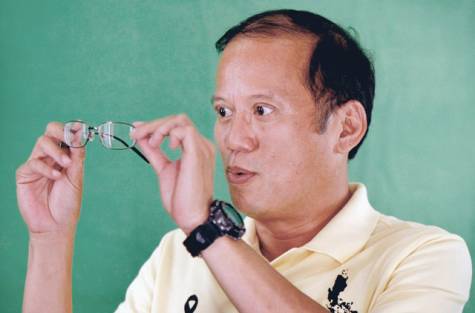
The title of this piece is one of the ultimate conversation spoilers when we talk politics, especially these times when we wish to hold the President, senators, congressmen and their fake NGOs accountable for the outrageous amount of pork barrel funds they abused or plundered.
The mostly educated fall prey for this rather simplistic and erroneous phrase and in the process let the crooks and plunderers get away with murder. It is a not-so-smart smartass retort that we should pin down and take out from our political vocabulary.
Yes, we vote to elect thousands upon thousands of public officials as part of the periodic elections. Yes, we must bear some responsibility for making it possible for them to govern or to misgovern. But that’s it. More than that is being unfair to citizens who voted to give these officials the widest possible latitude to serve them and to fulfill their duties in accordance with the laws.
But to blame citizens, especially the masa, for all the lying, cheating, stealing, and murdering the public officials do is just unfair and too much. And that is precisely what happens when we throw into political discussions the phrase “you voted for them”.
For instance, those who voted for PNoy should not be blamed if he turned out to be the biggest coward in the country when faced with a national clamor to abolish the pork barrel. It is not the fault of pro-PNoy voters if he now says he cannot stop his fellow traditional politicians from making use of public funds, as if it is their own, to make sure they win in future elections. It is not the fault of pro-PNoy voters if he strongly defends his prerogative to keep more than a trillion pesos in pork barrel funds for himself, more than a billion in “calamity funds” for side-kick DILG Secretary Mar Roxas, and zero for Vice President Jojo Binay. All these were done or said by PNoy and he alone should be held accountable for them.
Whatever a winning candidate does in office – especially if these turn out to be criminal acts – should be under his account. We could be certain that as criminal acts go, these officials and their cohorts planned and conducted their criminal undertakings secretly and thus almost impossible for voters to know.
Thus, when a public official, especially an elected public official, is found to have a committed a crime, only him and perhaps his cohorts are held accountable and brought to court. And the crimes are introduced as “People of the Philippines vs. (insert name of trapo).
Still on the pork barrel, all of us, voters or not, direct or indirect taxpayers, Filipinos here and abroad, and even our foreigner friends living and doing business in the country have absolutely nothing to do with the criminal acts of these officials. We did not know that they were doing serious plunder because if we did, we would have stopped them on sight.
Our friends who harbor such cynical views should know that the trapos that they hate feed on their cynicism to justify and perpetuate their existence. Yes, they do. Because the sense of helplessness among the middle class and the poorer lower class emboldens the trapos to continue to try to hoodwink everyone into believing we have no other choice except them, as if they are God’s gifts to the country.
The phrase also covers up the whole trapo system and its role in the mess we are in. Elections in the country are not as simple as majorities or pluralities making candidates win on Election Day. It is a system of political parties that are different in name only and all the same substantially — so much so that politicians don’t think twice about jumping from one party to the other. It is a system dominated by political dynasties and families who end up there because they also have meaningful control of business and land, among others. It is a system pre-determined whose candidates are pre-determined by “winnability” – due to pedigree or celebrity. It is a system that uses automated machines that have yet to be checked independently for accuracy. It is a system that, by Election Day, gives voters only a few choices, mostly bad. We cover up these truths each time we spout “you voted for them”.
Perhaps the phrase “you voted for them” has a redeeming value somewhere else, like in the cause of reforming our elections and political parties. This phrase reflects the cynicism of the middle class. And hopefully, such cynicism would yield to something better and brighter – like activism for electoral reform, to forming genuine people’s parties or supporting existing ones that already have a record of activism within government. Like “fact-checking” officials, candidates and parties.
Finally, so what if we voted for these plunderers, thieves and cheats? They must pay dearly for violating our trust and we will make sure they do.